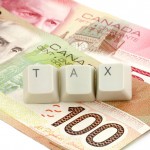 Tax Tips that won’t help your business.
Tax Tips that won’t help your business.
When it comes to taxes, there’s no shortage of “expert” advice. Since we all must deal with taxes at least once a year, many people believe they understand everything they need to know about the topic.
This leads to plenty of “free tax advice” being passed around. Truthfully, most of this advice could lead to a lot of trouble for your small business.
Don’t put yourself at risk for CRA fines and interest penalties. Avoid these five awful small business tax tips.
#1. Classify All Your Employees As Independent Contractors
As a small business owner, you may receive advice to classify all of your employees as independent contractors. This could be a recipe for serious CRA trouble.
While it’s true that classifying employees as contractors can save your business money on payroll taxes, it could also lead to penalty and interest charges. The CRA has guidelines on determining which of your workers are employees and which are considered contractors.
You may save money in the short run by misclassifying employees as contractors, but there is a good chance the CRA will find out and penalize you. If you’re unsure about whether you’re classifying employees properly, speak to a small business tax expert.
#2. Spend As Much As You Can To Maximize Deductions
“The end of the year is approaching. Spend as much as you can to maximize your deductions!”
Spending m oney on business expenses like equipment upgrades and marketing lowers your tax burden. However, unless you really need a new piece of equipment or a new marketing initiative, this is usually a shortsighted strategy.
oney on business expenses like equipment upgrades and marketing lowers your tax burden. However, unless you really need a new piece of equipment or a new marketing initiative, this is usually a shortsighted strategy.
Weigh the impact of these expenditures on your cash flow. If spending now on things you might not need puts you in a position where you’re unable to pay your bills in a few months, don’t do it. If you really do need that equipment upgrade, it might actually be a better tax strategy to lease rather than purchase outright. Get informed tax advice before you buy.
#3. Claim Your Car, All Your Meals And A Home Office As Business Expenses
Some people may advise you to take a very liberal approach to the “business expenses” you claim as deductions, but if you’re caught claiming unqualified expenses, you’re going to be penalized.
You need to be careful with making deductions related to your car. According to the CRA, you are allowed to deduct the full cost (with some limits) of your car’s operations if your car is used for business purposes only. However, if you use your car for both business and personal use, you may only deduct the cost of its use for business.
Additionally, most business owners and employees are only entitled to deduct 50% of the cost of meals while traveling for business, entertaining customers or attending a conference. In most instances, trying to deduct more than 50% of these meals or deducting meals not related to business is a recipe for trouble. Remember to always keep your receipts for business meals and write down the business purpose of each meal and who you were with. The onus is on you to prove the legitimacy of these expenses.
Claiming a home office is tempting for small business owners who work out of their homes. However, you need to pay careful attention to CRA guidelines on home office deductions. According to the tax authorities you must regularly use part of your home exclusively for conducting business to qualify for a home office deduction.
Before you start calculating the square footage of your home office and deducting a percentage of your rent or mortgage, think carefully. As with most tax regulations, complexities and exceptions exist. If you’re unsure whether your business expense deductions are acceptable, speak to a small business tax advisor.
#4. Avoid Deductions – They Lead To Audits
On the flipside, you may receive advice from overly cautious people not to deduct anything for fear of an audit. While it’s always better to err on the side of caution when it comes to your small business taxes, you don’t want to miss out on legitimate deductions.
The key is knowing which deductions are acceptable and which are not. Working with a small business tax advisor helps you determine if you’re taking eligible deductions.
#5. Don’t Worry About Your Taxes Until They’re Due
As a small business owner, you’re likely up to your neck with the day-to-day operations of running a business. It might be tempting to put off thinking about your taxes until the last possible minute.
However, minimizing your tax burden requires planning throughout the entire year, not just at tax time. Additionally, ignoring taxes until they’re due could lead to a tax bill you don’t have enough cash on hand to pay.
If you don’t have time to take on the full burden of small business tax planning, consider outsourcing it to a local small business tax expert.
With the right guidance and support, you’re able to manage your small business taxes in a way that minimizes your tax burden and your risk. Just make sure to avoid the awful small business tax tips outlined above.
 Leave a comment
Leave a comment